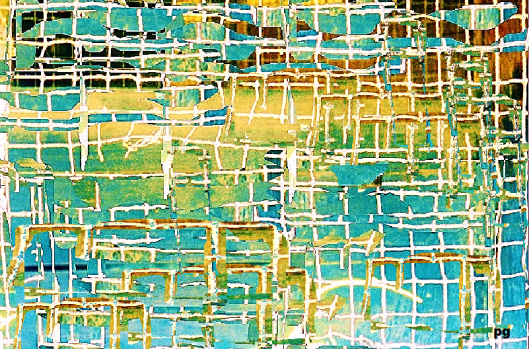Two mirrors sit
opposite each other
and look at each other
Then they get up
and go their own way
And both are thinking
how good it is
to be in touch with someone
Hans Cohn
It is no secret that we at Aephoria Partners work with an existential approach to life, leadership, coaching and psychotherapy. And it is with this in mind that I wanted to write about the work of Hans Cohn (1916-2004), an existential writer, poet and psychotherapist. There is much that he has written that could be profitably applied in leadership, coaching and psychotherapy, but today I want to talk about the fluidity of self and the impact of context on this.
This is a conversational rather than academic piece of writing so I am not going to take time defining coaching or talking through current approaches to coaching. Instead I want to speak directly from my experience of coaching and the lessons taught me in my coaching training (Integral/Ontological and typology based training). Also, I want to acknowledge the very broad range of coaching taking place in the world and my own orientation towards the deeper more psychological forms of coaching although I do acknowledge the value and importance of more task driven type coaching.
I would like to start by noting the recent article by Mitchel and Young in the Hermeneutic Circular (2019) in which they note that Hans believed that
“context was more important than the individual – there is no such thing as a fixed self, none of us is this or that having certain characteristics in all situations, we are not isolated individuals we are relational beings”(Mitchel,Young, 2019, p. 5).
In other words, our relational nature means that the context, which includes the coach, invites specific aspects of client self to the fore. In this way the client that meets you is very different from the same client meeting any other coach, and of course the same goes for the coach that the client meets (adapated from Cohn, 1997). No one meets anyone else in quite the same way. We are all in the iterative process of being that sparks off each other. This is the nature of being human.
Challenging ideas for coaching: Fluid self, shifting in relation to context, coach as context, typology as context
Cohn’s work as described above brings us to consider four quite challenging ideas for coaching; namely the fluid self shifting continuously in relation to context, the coach as context and typology as context. These ideas are challenging because they stand in almost direct opposition to many of the current ways of thinking about coaching. Lets explore below.
My experience suggests that most coaching seeks to change behaviour and not self, either because the self is not seen as a zone that coaches work in (too psychological) or because the self is something that is concretised into an unchanging essence that should be excavated rather than worked with. This view is reinforced by typologies such as the MBTI, insights and some understandings of the Enneagram that assume a stable self that can be measured and described out of context like a standalone snapshot of a person above a fireplace.
The second challenge from Cohn is that he is calling us to acknowledge our impact as a coach on our clients. We are not seeing a stable self who is the same with everyone but someone who is responding to us and to the context in which they live, work and love. If we don’t see the context in the clients presence, then things will get distorted and we will tend to read the client as we are not as they are.
This effect gets further compounded when we remember that the context can also mean the typology that the client is engaging with including the MBTI, Insights and the Enneagram. These too bring forth different aspects of a client self.
When we work with client as a stable self, we negate the innate ability and responsiveness we humans have to the environment and others. This means we may reduce our clients intrinsic adaptability and agility as leaders and people, and we may limit their ability to grow and mature in response to the world.
A huge opportunity for coaches: Relationship as leadership
Cohn notes that we are relational in nature and as a result every relationship is specific to that couple but also revealing of how we do relationships in general.
Leadership is about relationship and coaching is an opportunity for the coaching couple to understand how the client (and coach) holds relationships. If we avoid five step processes and focus on the here and now bond in the coaching situation we can bring in very useful information about how our clients behave in relationships and lead through these. This information is to my mind more useful to leaders than identifying any other personality trait because relationship is the primary tool through which leaders lead. If we can understand how they lead through our relationship with clients we can present them with some very useful information.
And again…. Coach get trained properly
Lastly, what this brings to mind is the need for preparing coaches more effectively. We need to stop telling them that a five step process will produce the results clients want and start building a level of reflectiveness within coaches. Many coaches are merely advisors working off book learning and their own understanding of the world. This is not enough
- Adapted from Cohn, HW “Existential Thought and Therapeutic Practice” pg. 33
Julia Kukard
- Julia received a grant from Hans W Cohn Scholarship for 2019 from the Society for Existential Analysis




